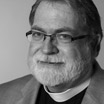Stewarding the trust God has given each of us, Part 3
“Now it is required that those who have been given a trust must prove faithful. I care very little if I am judged by you or by any human court; indeed, I do not even judge myself. My conscience is clear, but that does not make me innocent. It is the LORD who judges me…” (I Corinthians 4:2-4 NIV)
Many of us will be entering this new year with resolutions. Some of us are still in the process of identifying those things we want to change in 2018. For the last two weeks I’ve been sharing my conviction from I Corinthians 4:2-4 that we are called to be better stewards of what God has given us exactly where we are. I have been thinking and praying about what that looks like for Bishops, clergy and laity.
But as I thought about this as it pertains to laity, I realized that the distinctions I have drawn are, though biblical, categories of servants that we find in the New Testament church. Upon further reflection, I’d like to shift the focus a bit to get a little closer to the pages of Holy Scripture. What I mean is that all of us are followers or disciples (mathetes) of Jesus Christ. While I am an ordained presbyter, I haven’t stopped becoming a deacon either—it’s a central part of the ordained ministry I do as a presbyter to exercise diakonia or service. Likewise, I haven’t stopped becoming a follower of Jesus either.
In my morning Bible readings and prayers, the subject of calling has come up again, and again in this new year and its only January 19th. So, what are we doing as the people of God, as disciples of Jesus Christ, with the calling God has entrusted to us? And how might we better steward that calling in 2018, exactly where we are?
We know from God’s word that there is a corporate dimension to our calling as God’s people. The prophet Jeremiah wrote to the people of God, to Israel in exile in Babylon, “’For I know the plans I have for you,’ declares the LORD, ‘plans to prosper you and not to harm you, plans to give you hope and a future.” (Jer. 29:11 NIV). The prophet even paints a detailed picture of what that corporate calling will look like for God’s people in exile even as they seek the prosperity of the city to which God has now called them. (see Jeremiah 29:1-10)
Likewise, Jesus himself declared the corporate calling he has for you and me together, his disciples, in his Great Commission: “All authority in heaven and earth has been given to me. Therefore, go and make disciples of all nations…” (Matt. 28:16-20 NIV). Jesus paints a compelling picture of our corporate calling to be disciples who make disciples: with his authority, going to all nations, baptizing, teaching people what it means to do everything Jesus commanded us to do, and enjoying his never-ending presence in the process!
On this day where we affirm the Right to Life, and where many Anglicans are joining other followers of Jesus in the March for Life, and to protest the holocaust of abortion, we remember that all members of the Church “are called to promote and respect the sanctity of every human life from conception to natural death.” (ACNA, Can. II.8.3).
But there is also evidence of a personal and individual dimension of calling. To his disciple Peter, Jesus said “but when you are old you will stretch out your hands and someone else will dress you and lead you where you do not want to go.” (Jn. 20:18 NIV). To his disciples James and John- who were hoping their calling was to sit in the places of honor next to Jesus in his glory—Jesus corrected them with his true calling for each of them: “You will drink the cup I drink and be baptized with the baptism I am baptized with, but to sit at my right or left is not for me to grant.” (Mk. 10:39-40 NIV). To his disciple Paul, the risen Jesus said, “I have appeared to you to appoint you as a servant and as a witness of what you have seen of me and what I will show you.” (Acts 26:16 NIV). Jesus goes on to paint a compelling picture of the call he is giving to Paul, to rescue him from Jew and Gentile alike and to send him to the Gentiles “to open their eyes and turn them from darkness to light, and from the power of Satan to God, so that they may receive forgiveness of sins and a place among those who are sanctified by faith in me.” (26:17-18)
In The Call, Anglican speaker and author Dr. Os Guinness has written a classic work onfinding and fulfilling the central purpose of your life. He makes the case that there is a specific, personal call of God for all the saints—not just the apostles, but you and me too. When Jesus calls, He calls us one by one. Comparisons are idle, speculations about others a waste of time, and envy as silly as it is evil. We are each called individually, accountable to God alone, to please Him alone, and eventually to be approved by Him alone (at 132). The truth is not that God is finding us a place for our gifts but that God has created us and our gifts for a place of His choosing—and we will only be ourselves when we are there (at 47). In other words, our quest for identity and significance cannot be satisfied apart from discovering God’s call on our lives. Think of the implications for this in our secular culture where human identity is now literally up for grabs.
As Guinness also observes, while God normally calls us along the line of our giftedness, the purpose of giftedness is stewardship and service, not selfishness (at 46). Here is the trust: along the lines of your giftedness and mine, how is God calling you and me specifically to serve Him and others in 2018? How can you and I find that place, wherever we are now and wherever he may lead us accordingly?
There’s another great author I’ve been reading lately that has something to say on this, Oswald Chambers. On Sunday, I was reading his devotional for the day, from Isaiah 6:8: “Then I heard the voice of the LORD saying, ‘Whom shall I send? And who will go for me?’ And I [Isaiah] said ‘Here am I. Send me!” Oswald Chambers writes:
“God did not direct His call to Isaiah—Isaiah overheard God saying, “…who will go for Us?” The call of God is not just for a select few but for everyone. Whether I hear God’s call or not depends on the condition of my ears, and exactly what I hear depends on my spiritual attitude.”
You can read the whole devotion on Called by God here. You see, because he was close to God, Isaiah was able to overhear God’s call. Because both his ears and his heart/attitudes were open, he was able to hear and respond to God’s call. How about you and me in 2018: how can we get closer to God, guard our hearts and open them even more to hear his voice always?
I go back to that wonderful sketch of Jesus burying his head into the side of that sheep—that sketch that hangs on the wall of my prayer room. It is an icon of the closeness to which Christ is calling me in surrender and humility, even and especially when I have wandered far in a land that is waste. One of my resolutions in 2018 is that nothing will get between me and the Good Shepherd who holds me tight—how about you?
So, lets suppose we resolve to stay as close to the LORD as we can, to hear his specific call on each of us, and to let him lead us where he chooses in 2018: will His call intersect with my current job, my vocation, the place where I find myself today? That is certainly a question for prayer and discernment. But for many of us, it’s also a question that can be full of brooding and anxiety.
What if we ask a different question: instead of “where is your call leading me,” what if we ask “LORD, how do you want me to live into that call, wherever you may be leading?” You see, that’s the question of discipleship. It’s not the destination that matters: it’s how we live as Jesus would live along the way. Wherever we are right now, wherever God’s specific call may be leading us… How would Jesus live our lives in this place, in this moment, if he were in our shoes.
This is the intersection of calling and discipleship. As Os Guinness notes, its about service and stewardship, not selfishness. It is the intersection of being and doing in Christ. God willing, Christ calling and the Holy Spirit empowering and leading, may we find that intersection in 2018, each of us. There, we will find our true identity, our true humanness and our true mission!
The Rev. Canon Phil Ashey is President and CEO of the American Anglican Council.




